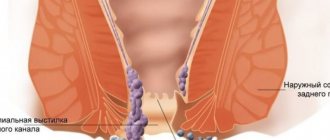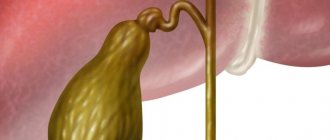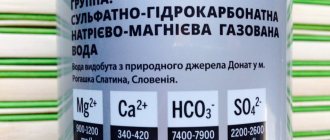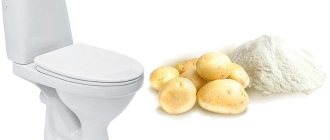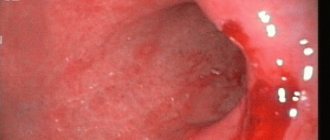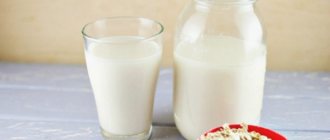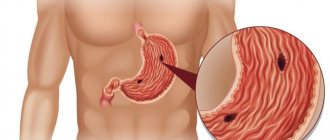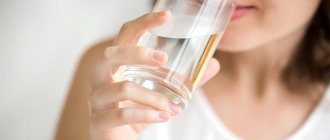Alcohol intoxication
Often people who have had too much alcohol the day before are interested in what to do to prevent nausea after drinking. Headache, fatigue, tremors of the limbs, sweating, high blood pressure are common signs of alcohol intoxication. These include dyspeptic symptoms from the gastrointestinal tract (nausea and vomiting).
Causes of nausea after drinking alcohol
What to do if you feel sick the next morning after a hangover?
First aid to the body is to completely cleanse it of the remnants of liquid and food taken the day before. They may contain undigested alcohol, which continues to poison the blood. For cleaning, gastric and intestinal lavage and intake of adsorbents are usually used. Regular activated carbon tablets bind toxins well. This remedy is taken at the rate of 1 tablet per 10 kg of body weight.
Folk remedies
You need to know how to properly get rid of nausea using folk remedies after drinking. Under no circumstances should you have a hangover from alcohol. This leads to an even greater increase in the level of toxins in the body.
In folk medicine, there are many recipes for how to remove nausea from a hangover. The simplest and most affordable means to relieve unpleasant symptoms:
- bread kvass;
- brine (not marinade!);
- curdled milk and other liquid fermented milk products (kefir, kumiss, ayran).
Kvass and brines contain dissolved microelements, glucose, vitamin C and B vitamins, which helps normalize blood composition. They also have a diuretic effect, accelerating the removal of toxins from the body.
Fermented milk products are a source of probiotics, beneficial microorganisms. Nausea during a hangover is also caused by severe irritation of the mucous membranes of the digestive tract. Probiotics restore intestinal microflora and help relieve unpleasant symptoms.
Sometimes the withdrawal syndrome is very severe, and the person cannot drink or eat anything. If you feel very sick from a hangover, what should you do in this case? In such a situation, you must immediately call a doctor. Such a symptom may be a manifestation of a hypertensive crisis or other life-threatening conditions.
| A drug | Description | Reception |
| Motilium | Eliminates all symptoms of dyspepsia, including nausea, heartburn and belching. | Dissolve 1 tablet under the tongue and eat something after 30 minutes. |
| Cerucal | Normalizes digestion, relieves nausea, heartburn, and eliminates vomiting. | Take 1 tablet (10 mg) with water and eat something after 30 minutes. |
| Zofran | Blocks the gag reflex, relieves nausea. | Dissolve 1 tablet in your mouth and eat something after 30 minutes. |
In addition to drugs to relieve nausea, you can take medicine from the group of hepatoprotectors that restore liver function:
- Essentiale Forte;
- Phosphogliv;
- Karsil;
- Gepabene;
- Plant's hepatofalcus.
All these remedies relieve spasms of the biliary tract, improve the flow of bile, cause slight loosening of stools, and normalize digestion.
To maintain normal functioning of the body, it is very important to know how to behave if you feel sick after drinking, and what to do to alleviate the condition. But it is better not to drink alcohol in large quantities
If nausea or vomiting after drinking alcohol becomes obsessive and painful, you should consult a doctor.
Once in the body, alcohol causes general harm, causing poisoning of all organs and systems. In particular, the acid-base balance is disturbed. Nausea can often be caused by high acidity of the stomach contents.
The body tries to get rid of toxic substances in this way. The situation is aggravated by other dyspeptic phenomena:
- diarrhea;
- bloating;
- flatulence;
- irritation of the gastric mucosa.
The appearance of traces of bile in the vomit indicates damage to the liver and gallbladder. Vomiting and nausea with minor poisoning may stop on their own after prolonged sleep. In order to quickly rid the body of toxins, it is necessary to take measures at home to prevent the appearance of a prolonged hangover.
How to avoid vomiting after drinking and after
The strange thing is that my friend always suffered from the fact that alcohol makes him vomit all the time. Many times he said something like this: all my acquaintances and comrades quite rarely reach such a condition when they feel the need to vomit.
And some admitted that in their entire alcoholic experience they had such embarrassment no more than 2 times. But for me, consider it the opposite situation! I can actually remember two or three drinking bouts where I managed to get really drunk without throwing up from the alcohol.
If you don't have a juicer, buy 100% juice blends with no added sweeteners for the most nutritional impact. Beer after wine and you'll feel good; wine after beer, and you “will feel strange.” Is this saying correct? In any case, drunkards are unlikely to be best suited to provide audio empirical data. The simplest cultural explanation emerges if we assume that no serious malicious intent is intended to mix drinks in this way; drinks beer only resorts to wine when the beer is finished, and vice versa. Due to the dehydrating effect of alcohol, the more beer you drink, the thirstier you become, so by the time the beer is all gone, you'll be throwing back plonk as if it were water. The depraved wine lover, on the other hand, when forced to resort to beer, can be assumed to have habituated himself to his drink gracefully, so that only an extra pint will be knocked down by the time the party breaks up, there will be no significant negative consequences. In English we say, “Oak before ash, and we are sure to have a splash; ashes in front of the oak tree, and we will surely soak it.” If wine follows, it will be diluted to some extent with beer, which has already “evened out the stomach.” The poor drank beer and the rick drank wine, so if you first drank beer and then wine, you did good in life, but, in any case, it was not very good. that saying it in Dutch is the other way around. Drink beer first and you'll get used to drinking large volumes at a time, then splash out the wine like it was beer and you'll be worse off the next morning. Drink wine and then drink beer, and you'll tend to drink it more slowly, hence less drunk and less hungover. Drink whatever you want, but you'll have to deal with it tomorrow anyway. After reading all the logical statements above, it seems to me that Geoff from Toronto's proposal is proven by Pete from Willenham. The saying “wine has no fear before beer” is now part of my long-term memory. After all, logic says that switching to a drink with less alcohol, something like water, is better. But if you look at how you got sick, you have to throw food in there as a variable. Drink the spirit, especially on an empty stomach, and your stomach sphincter will pinch harder than a possum possum. This restricts the flow of alcohol into the large intestine, where it is absorbed into the bloodstream. Grow some amber nectar on top of this and you'll have a nice flow of warmth for the next few hours. Try it the other way around and the beer and wine mixture goes straight into the brain box with no throttle. No, you stupid people who keep saying “Beer after wine is not so good”!
- But let's assume that there is some truth in it.
- There is an English-German difference in another folklore word.
- This so-called saying occurs from an early day.
- Michael Troll, Amsterdam, Netherlands.
- Wine after beer is not afraid, beer after wine is not so good.
- Oh well, it's the holidays, so do it together!
- Keith Dunwoody, Atlanta, USA.
- Beer before wine makes you feel good.
- Wine is never afraid of beer.
- Drink wine while rhyming every time.
- Joy Grozjidanich, Olehhampton, Germany.
- Gardner Monk, Vancouver, Canada.
- The same goes for wine, but to a lesser extent.
- You're confused with this: Whiskey beer, very risky.
- Beer before wine, that's okay.
- Wine before beer, oh dear.
If it is no more than 5 drinks, then this is the clinical threshold for a casual drinker to exhibit your symptoms.
How does this happen?
I must admit that the friend I am describing started drinking a long time ago, that is, he has an alcoholic experience of about 10 years. He also complains that he doesn’t get drunk as much as he would like. Through experiments, he discovered that he had a certain safe dose, above which he almost 100% vomited.
If you vomit bile or blood
Sometimes drinking alcohol provokes uncontrollable vomiting. The person continues to vomit even after he has completely emptied his stomach. At the same time, he feels a strong bitterness in his mouth, and the vomit has a yellow color and a characteristic smell of bile.
Vomiting bile after alcohol is a sign of toxic damage to the liver and the release of the contents of the gallbladder into the stomach.
In such cases, it is very important to know how to stop vomiting after drinking alcohol. To do this, after washing the stomach, it is necessary to take the person out into the fresh air or open the windows.
Drinking hot drinks in small sips will also help calm the vomiting center. Tea with mint, valerian or chamomile is suitable.
An even more serious symptom of liver damage is the appearance of blood in the vomit. If a person vomits blood after drinking alcohol, it means he has internal bleeding. In this case, you must immediately call an ambulance.
The reality and myths of drinking
As the now classic Zhvanetsky said: “vodka in small doses is useful in any quantity.”
This statement is partly confirmed by studies of the effects of various doses of alcohol on the human body. To maintain health, it is necessary to allow the body to recover after drinking.
After drinking alcohol, it is important to regularly allow the body to recover on its own.
The safe dose of strong drink is 170 grams no more than once every eight days. By exceeding the frequency or amount of alcohol consumed, a person crosses the safe threshold of toxicity and exposes his internal organs to the risk of destruction.
A small amount of alcohol, even according to doctors, can be beneficial due to its mobilizing effect on the body's defenses.
And unpasteurized beer and most wines made from natural juices contain many biologically active impurities, vitamins and antioxidants. This doesn't make them an elixir of life, but in moderation these drinks are beneficial.
We are far from the conceited idea that after reading this article, the entire Russian-speaking population, imbued with the seriousness of the consequences, will stop drinking alcohol. But perhaps someone will learn a few useful rules on how to drink alcohol, and this is not so little.
In the midst of the people there are entire oral encyclopedias dedicated to the rules and secrets of how not to get drunk until you lose your memory. Among them are many myths that are far from reality, but stubbornly pass from generation to generation, such as, for example, the surest way to avoid getting drunk.
If alcohol makes you sick, following the norm
The majority of people who take wine or vodka during a feast discover weakness and signs of nausea only in the morning, the day after the celebration. The next morning, the gastric mucosa will be in a state of irritation. This will require the body to free the stomach from the harmful effects of toxic substances contained in alcohol.
If you need to drink alcohol at any meeting, you should follow a certain dose, which is individual, so as not to suffer from a hangover the next day.
A person in a state of hangover, which causes nausea, suffers from headache, lethargy, diarrhea, and bloating. Alcohol consumption is associated with leaching of minerals from the stomach, which causes dehydration and intoxication. Ethanol ingestion is accompanied by an increase in the amount of urine, which causes dry mouth and lethargy, including associated migraines and lightheadedness. There is a decrease in blood glucose levels.
Different people tend to take different doses of wine or other alcoholic beverage, which can cause the patient with alcohol poisoning to feel sick from alcohol. The onset of a hangover syndrome is associated with individual intolerance to alcoholic beverages, since the stomachs of different people contain different amounts of enzymes that are responsible for the digestion of harmful substances in the body.
Rules for drinking vodka
As a rule, people feel sick after drinking strong alcoholic drinks
As a rule, people feel sick after drinking strong alcoholic drinks. Most often, it is vodka that becomes the culprit of a person’s poor health after the holiday. First of all, you need to choose the right alcoholic drink. You should not buy products from a dubious manufacturer, surrogates and fakes. As a rule, such a bottle contains ordinary diluted alcohol of not the best quality. It’s good if this surrogate is made with ethyl alcohol, but if the basis is methyl alcohol, then the matter can result in disability (deafness or blindness) or death.
Important: give preference to proven brands. Buy the product only from a good, reliable store. Don't be tempted by the low price. Good quality vodka cannot be cheap.
It is also not recommended to drink imported vodka, the strength of which is below 40% (usually it is 37.5%). The same goes for fruit vodka, which is very similar in strength to liqueur. This product contains many additives and harmful components that can significantly worsen your well-being after a feast.
Rules for serving and drinking 40 degree drink:
- Vodka must be served chilled, but it does not need to be placed in the freezer. The temperature of the alcoholic drink should be between 10-12°C.
- You need to drink from small glasses with a capacity of no more than 50 ml.
- It's better to drink in one gulp. To do this, first exhale. Then the drink is swallowed and then inhaled.
- You need to take a snack for every dose you drink. But just don’t drink carbonated drinks. This will increase intoxication.
What not to do
Actions for a hangover
Even if a person who has been poisoned by alcohol suffers from a severe hangover, it is not recommended to have a hangover. Experts warn: a new portion of alcohol will only bring temporary relief, and then it will get even worse. The liver has not yet had time to process all the ethanol that entered the body the day before, so if you continue to drink the next day, this leads to serious consequences.
Contrary to popular belief, you should not take a cold shower or bath while intoxicated. After a large dose of alcohol, the brain and nervous system react inadequately to what is happening; under the influence of cold water, severe hypothermia can occur. A sharp change in temperature can lead to a spasm of the respiratory center and a complete stop of breathing.
It is not recommended to drink coffee to get rid of nausea and other signs of a hangover. The drink has a stimulating effect, increases heart rate, which has an adverse effect on the poisoned body. Coffee has a strong diuretic effect, which leads to additional dehydration of body tissue and brain.
Taking medications
Special medications cause excessive vomiting. Against the background of drug exposure, the digestive organs are stimulated. The drugs are prescribed to patients who are unable to induce vomiting on their own. The drug is used strictly according to the instructions. An overdose often ends in intoxication of the body.
Medicines that cause nausea and vomiting:
- Apomorphine. Analogues: Ergot, Levodopa. The medicinal components have a direct effect on the central chemoreceptors, the body’s reaction is expressed in the form of vomit. Medicines are used to treat Parkinson's disease. Contraindications: do not use during lactation or pregnancy. Do not use for the purpose of weight loss.
- Morphine. Release form: film-coated tablets. The drug is prescribed as a powerful pain reliever for seriously ill patients. Due to the content of narcotic drugs (opium), the drug is dispensed as prescribed by a doctor. Not publicly available. Nausea and vomiting appear as a side effect at the time of initial use of the drug, and disappear as adaptation occurs.
- Fluoxetine / Paroxetine. Antidepressants are medications that affect the central nervous system and cause active stimulation of endorphin (the hormone of happiness). Side effects of antidepressants manifest themselves in the form of disruption of the gastrointestinal tract, the patient develops a constant feeling of nausea. Consumption of antidepressants helps lower blood pressure. People with low blood pressure should avoid taking medications. The use of antidepressants as a vomiting stimulant is permitted in extreme cases.
The use of medications must be carried out under the supervision of a qualified specialist. Self-medication often ends with serious consequences.
Universal rules
The first rule of fire water: don’t drink liters of strong alcohol (you shouldn’t drink light alcohol either).
You can easily sip this long drink through a straw all evening, but this won’t work with shot glasses. Two or three glasses - and you have already chosen your dose. The second rule is not to mix drinks. Strong alcohol contains a lot of alcohol, adding extra grams using the lungs is dangerous. You may not calculate the dose and overdo it.
In order not to go overboard and ruin everything, rituals are needed. The setting, the choice of glass, special additions and the right snack. All this helps to reveal (or hide) the taste of the drink and makes the feast a feast, and not a booze.
- vodka - 51;
- fortified wine - 103;
- dry, regular - 172;
- beer - 415.
If a person does not want to stop his bad habits, he can drink 20 grams daily. pure alcohol, which does not have a pronounced effect on the liver. However, it is recommended to adhere to the following rule: you should not drink alcohol more than twice a week.
The period of complete elimination of alcohol from the body
The only exception is real dry red wines. A man can drink 50 g of the drink daily, a woman - 30.
